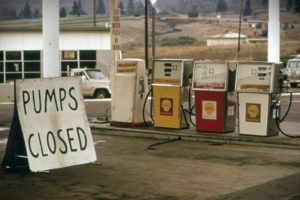Blog post by Geoff Cooper, Renewable Fuels Association President and CEO
 Fifty years ago this week, the Organization of Petroleum Exporting Countries (OPEC) announced an embargo on oil exports to the United States in retaliation for America’s support of Israel in the Yom Kippur War. The embargo took a devastating toll on the U.S. economy, as world oil prices quadrupled in a matter of weeks. Americans faced record high gas prices, long lines and rationing at gas stations, and—in many cases—stations that had no fuel at all. More broadly, the 1973 energy crisis was a major driver of the high inflation rates and stagnation that plagued the U.S. economy throughout the remainder of the 1970s.
Fifty years ago this week, the Organization of Petroleum Exporting Countries (OPEC) announced an embargo on oil exports to the United States in retaliation for America’s support of Israel in the Yom Kippur War. The embargo took a devastating toll on the U.S. economy, as world oil prices quadrupled in a matter of weeks. Americans faced record high gas prices, long lines and rationing at gas stations, and—in many cases—stations that had no fuel at all. More broadly, the 1973 energy crisis was a major driver of the high inflation rates and stagnation that plagued the U.S. economy throughout the remainder of the 1970s.
Five decades later, with war again raging in Israel and global energy markets again on edge, the semicentennial anniversary of the Arab oil embargo provides an opportunity to reflect on how far we’ve come in improving U.S. energy security—but also how far we still have to go to achieve true energy independence.
A few years after the Arab oil embargo was lifted, newly elected President Jimmy Carter signed legislation focused on strengthening U.S. energy security and better insulating the economy from global oil shocks. Among many other provisions, the bill included the first-ever tax incentives supporting the production and use of renewable fuels. And, thus, the seeds of today’s U.S. ethanol industry were planted.

